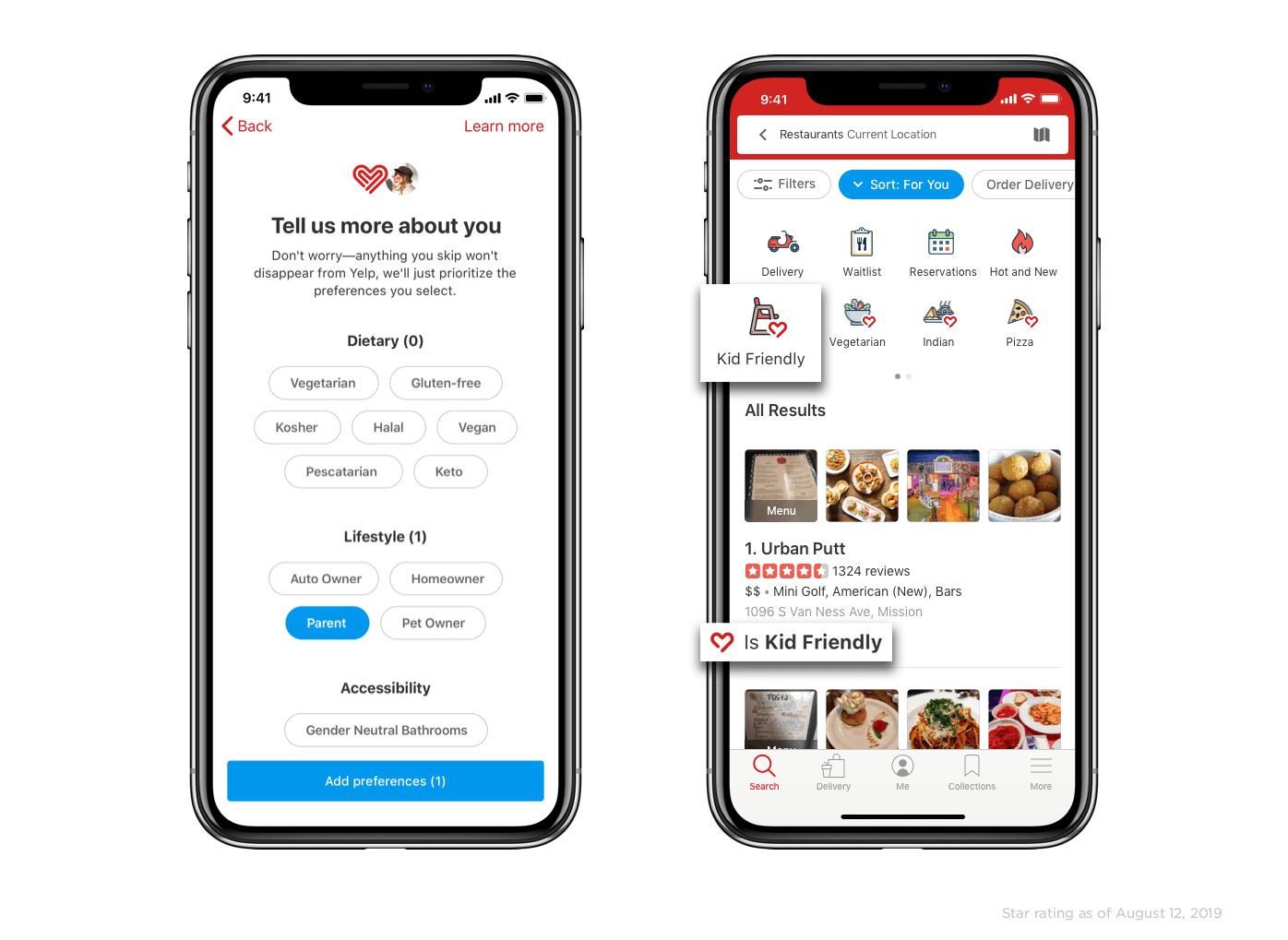Bottom line: It can be hard to find exactly what restaurant or business you want. Yelp is trying to fix that problem by introducing personalized search results based on user preferences. The company wants the app to be a "personal concierge" that can save money and energy.
Yelp is introducing a way to tailor search results based on user preferences. Users can set various preferences based on lifestyle, dietary restrictions, and accessibility options and have that reflected on search results and a custom home screen. This means that two users standing next to each other will have different results for the same search.
"We're starting an open conversation with people to genuinely get to know their preferences, giving them the control to transform the Yelp app --- turning it into a personal concierge for all things local, saving them time and energy. By surfacing information that represents the unique flavor of every neighborhood, we are making it easier for people to meaningfully connect with great local businesses. "
While surfacing personalized search results isn't a new concept, Yelp says that its trying to focus on being a "comprehensive personal concierge." To that end, Yelp is utilizing AI and machine learning to help extract data based on reviews, questions, and photos.
"We have high quality, expressive reviews, and a lot of this is unstructured content," said Akhil Ramesh, head of consumer product. "In the last two years, our machine learning and AI capabilities have grown immensely, and we've been able to tease out lots of great features that we can build on top of this unstructured information."

Yelp users can also set preferences to specific tastes or business types. This information will then be shown on the "For You" tab option. Also, since the categorization of information happens automatically, businesses don't have to do anything. Yelp wants this to be user generated in order to better "personalize" the experience.
The personalization could be really useful for someone with strict dietary needs, especially ones based on strict medial or religious need. Someone with Celiac disease could surface only gluten-free restaurants while a Jewish person could see mostly kosher restaurants. A wheelchair-bound customer could bring up businesses that have more accessibility options. Parents could get results that cater to children.
For now, this update is for iOS users only and is rolling out today. Android users will have to wait til next year.
